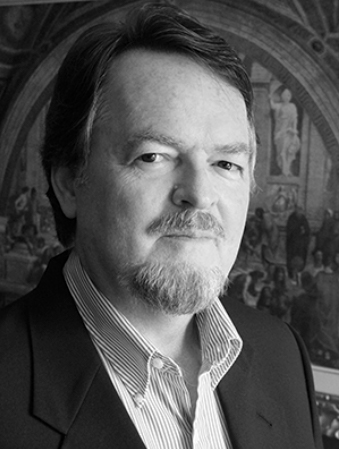Understanding the origin of Evil
by | Posted January 21st at 6:30pm
One of the best definitions of the mystery of evil is philosophically developed by Jonathan Cahn, a Messianic Jew. Herein, I have selected some of his best deductive reasoning.1
In popular culture, evil is often depicted in an almost cartoonish form. Because of this, its existence is often dismissed. But its presence is real, and its impact on our world is critical. We do so at our peril if we should dismiss or ignore it.
What is evil? And how did it come into existence? It is both a mystery and a problem. The mystery is the problem. The problem is that it is attempted to be used in countless arguments to disprove God’s existence or nature.
To find the answer, we must start with the foundations. That evil exists cannot be debated. To deny it is to deny reality. But the fact that evil exists does not disprove the existence of God. Nor does it disprove the existence of a supernatural or spiritual realm—far from it. If there was nothing more to life or existence than the material realm or the physical universe, we could not speak of good or evil. Then war, death, murder, and destruction would not be evil or even a problem but simply the playing out of forces and the rearrangement of molecules and atoms.
If there was nothing more to the universe, then we could not judge the Nazi murderer of Jewish children to be evil, or the righteous who risked their lives to save the lives of Jewish children from Nazi murderers to be good. Nor could we esteem life to be of greater value than death. As with meaning, values, and significance, good and evil require a reality beyond that of the physical. Without this all values, all moral codes, are meaningless, arbitrary, and valueless.
Evil, like good, is ultimately transcendent. Its existence does not disprove that the spiritual realm exists, but proves that it does. This leads to the next question: If evil exists, then how did it come into existence? More specifically, if God is good, then how could there be evil? And if God created evil, then how could God be good? But if God did not create evil, then how could evil exist? Or how could God be God? Therein lies the problem and the mystery. But the very problem of evil contains its answer.
If evil was created, it would not be a problem, nor would it be evil. Evil is a problem for the very reason that it was not created. It should not exist, because it was not created, and yet it does. The existence of evil defies the created order. It is not of the creation and thus exists in opposition to the created order.
Evil exists in defiance of existence. Evil is not simply a force, like that of an earthquake, a hurricane, or a fire. All these bring calamity and destruction. But none would constitute true evil. Both hurricanes and serial killers bring death. But hurricanes are not evil. Serial killers are. Why? The hurricane is an impersonal force. It acts without consciousness, will, choice, volition, or intent. But the serial killer commits his acts with conscious intent, will, and volition—and so is evil. And so evil is not an impersonal force—but a personal one, requiring consciousness, volition, will, and intent. Thus in our search for an answer to evil, we are led to personhood.
The Anti-Being What is it that makes evil evil? Evil is an inversion—an inversion of truth, of reality, of existence. Evil is, by nature, inverted and, by nature, inverts. It twists, bends, and turns existence in upon itself. It exists as anti-existence. Its being is anti-being, and its nature, anti-nature. It is a negation and therefore seeks to negate, a nullification that exists to nullify. It has no true, ultimate, or absolute existence and therefore acts to bring that which exists into nonexistence. And so evil, by nature, seeks destruction. It opposes that which is. Possessing no absolute or true existence of its own, evil is, as well, by nature, parasitic.
Being not of the created order, it can exist only by drawing its existence from that order. Evil must use the good. And so though good can exist without evil, evil cannot exist without good. Truth can exist without falsehood, but falsehood cannot exist without truth. Laws can exist without crimes, marriage without adultery, and life without murder.
Clarifying Note: Satan opposed Yahweh God, with his intent to usurp God’s sovereignty saying: “I will ascend above the top of the clouds, I will make myself like the Most High.” Isaiah 14;14 In this sense evil was not created by God, but by the misuse of a fallen angel’s free will.
But crimes cannot exist without laws, adultery without marriage, nor murder exist without life. Destruction requires structure, immorality requires morality, and sin requires the holy. The good is primary. Evil is the parasitic inversion of the good. And so the existence of evil inadvertently testifies not against the existence of the good—but for it. It bears witness, unwillingly, to the existence of the good—the existence of God.
As Jonathan’s book develops he helps us understand the headship of evil powers referred to Satan, the antithesis of good effecting our universe and which nations are at the forefront of satanic representation in the current ongoing saga prior to the prophesied Second Advent of Christ. A very important book for our time. I have posted a YouTube by Jonathan Cahn below. 2
1 Cahn, Jonathan. The Dragon’s Prophecy: Israel, the Dark Resurrection, and the End of Days (pp. 6-7). Charisma House. Kindle Edition.

Article posted by Glen R. Jackman, founder of GraceProclaimed.org
Glen has optimized his eldership role to teach the full scope of the New Covenant of Jesus Christ without
boundaries.
You can read his testimony.